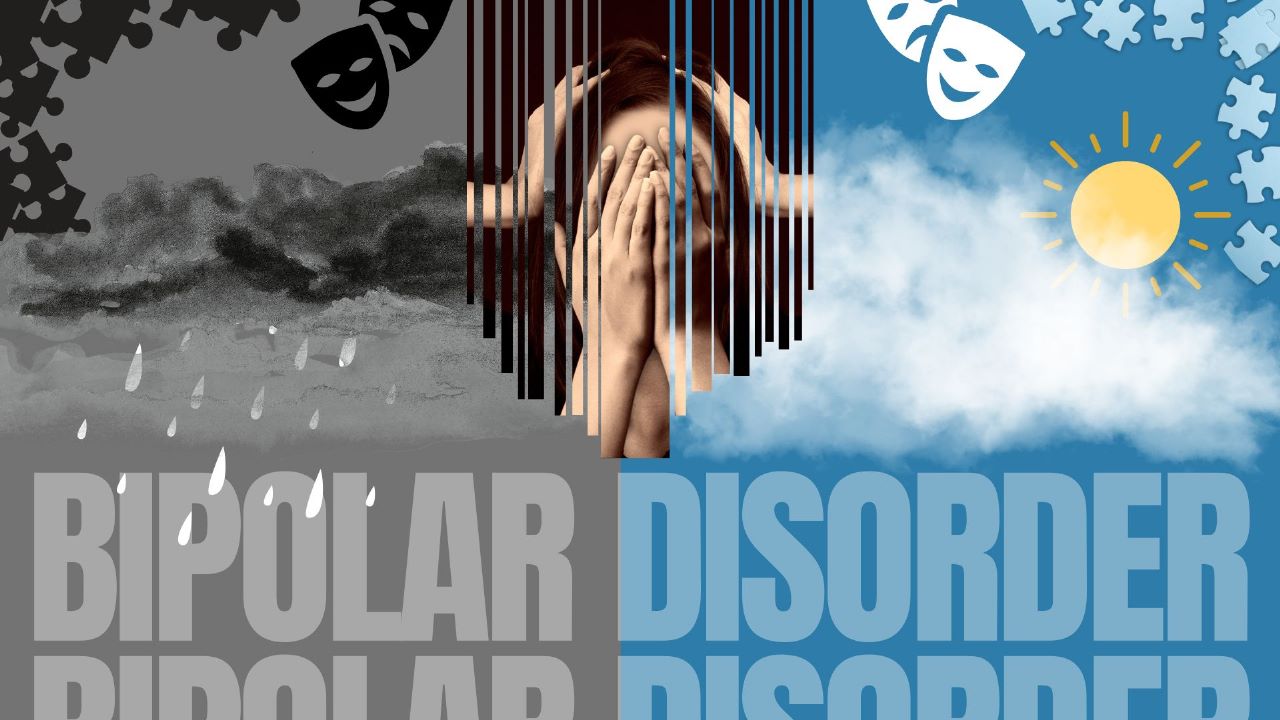How to go about Bipolar disorder in real life?
March 15, 2023

Bipolar disorder, formerly known as manic depression, is a mental illness that affects a person’s mood and behaviour. People with bipolar disorder have extreme mood, energy, and activity levels, which can make it difficult for them to function normally in daily life. We will discuss the symptoms, causes, and treatment options for bipolar disorder.

Symptoms of Bipolar Disorder:
Bipolar disorder symptoms vary from person to person and can be classified into two distinct groups: manic episodes and depressive episodes.
Manic episodes: During a manic episode, a person may experience the following symptoms:
- An unusually elevated or irritable mood
- increased levels of energy and activity
- Poor decision-making
- Impulsive behavior
- Pretension or exaggerated self-esteem
- Engaging in risky behaviour, such as substance abuse, reckless driving etc.
Depressive episodes: A person may experience the following symptoms during a depressive episode:
- Chronic sadness or depression
- Loss of interest or pleasure in events
- Fatigue or low energy levels
- Appetite or weight changes
- Hypersomnia or insomnia
- Feelings of inadequacy or guilt
- Difficulties focusing or making decisions
- Suicide or death thoughts recurring
Causes of Bipolar Disorder:
The precise causes of bipolar disorder are unknown. According to research, a combination of genetic, biological, and environmental factors may contribute to the development of this condition. Among these elements are:
- Genetics: Bipolar disorder tends to run in families, indicating that there may be a genetic component involved.
- Brain chemistry: Imbalances in certain brain chemicals, such as serotonin and dopamine, have been linked to bipolar disorder.
- Environmental factors: Stressful life events, such as trauma, loss, or abuse, can trigger bipolar episodes in some people.
Bipolar Disorder Treatment:
Bipolar disorder is a chronic illness, but with proper treatment, people with this disorder can live healthy and fulfilling lives. Medication and psychotherapy are frequently used in treatment.
Medications: Mood-stabilizing medications, such as lithium, are frequently prescribed to help manage bipolar disorder symptoms. Depending on the individual’s symptoms, other medications such as antipsychotics, antidepressants, and anti-anxiety medications may be prescribed.
Psychotherapy, also known as talk therapy, can assist people with bipolar disorder in learning coping strategies and developing healthy behaviors to help them manage their symptoms. Two types of therapy have been shown to be effective in treating bipolar disorder: cognitive-behavioral therapy (CBT) and interpersonal therapy (IPT).
To sum it up, bipolar disorder is a complex mental health condition that can have serious consequences in a person’s life. People with this condition, with proper diagnosis and treatment, can live healthy and fulfilling lives. If you or someone you know is exhibiting symptoms of bipolar disorder, it is critical that you seek professional assistance.
At www.Myndzmatter.com, you will find assistance for improving your mental health. You can find the right fit for your career, love, family, or life in general and begin your journey towards self healing.
